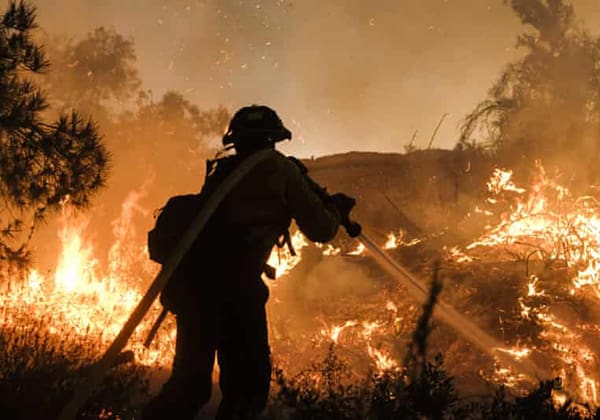A recent report by Deloitte estimated that inaction on climate change could cost the Australian economy $3.4 trillion, and nearly a million jobs, in the lead up to 2070. By 2050, inaction on climate change could cause Australia to experience economic losses equivalent to those suffered because of Covid-19 every single year. By contrast, action on climate change could result in the addition of $700 billion to our economy, and the creation of 250,000 jobs.
It’s increasingly clear that refusing to act on climate change is economically illogical. Yet climate denial remains an accepted political position — and one which studies show is overwhelmingly held by white politically conservative males. Why? At a basic level, white privilege can manifest itself in a general ease with high levels of risk, breeding apathy towards environmental issues. But more than that, the fossil fuel industry has deep cultural resonance for some men.
Over the course of the 20th century, fossil fuels adopted cultural meaning, signifying imperialism, development and Western growth. At the same time, masculine ideals entrenched notions of consumption, aggression and expansion in Western politics. Traditionally, this has manifested through waged economic labour, where men occupy roles in industries that are often propped up by fossil fuels, requiring strong associations with public life and high levels of travel. Meanwhile, traditionally feminised industries such as teaching, caring and secretarial roles are often devalued or unpaid, and are usually stationary with many women relegated to the home.
In this way, the consumption of fossil fuels has become critical to maintaining the existing social hierarchy. Challenges to the fossil fuel system as a result of climate change are seen as threats to white patriarchal rule, and increasingly fragile notions of “Western-hypermasculinity.” In her seminal study, American academic Cara Daggett coined this phenomenon “petro-masculinity.”
Daggett describes how, from the privileged standpoint of a petro-masculine identity, the suggestion of climate change and subsequent calls to reduce fuel consumption, are essentially akin to the supposed threat to masculinity posed by feminists attempting to dismantle hetero-normative assumptions of the traditional state and family.
Not only does adopting a position of climate denial help to preserve the status of the white conservative male in the overall hierarchy and economic system, from which he continues to benefit, but it is also consistent with the masculine ideal of being invincible and able to overcome any challenge. This was epitomised by Trump’s calls to “Make America Great Again” which was essentially a form of ‘petro-nostalgia’, calling for a reinstatement of the cheap energy which typified the American Dream.
If you’re ever interested in laughing and crying at the same time, google ‘Rolling Coal.’ What you’ll find is a collection of photos and videos of white, politically conservative men who have altered their truck and car engines in order to consume more fuel, so that they can intimidate pedestrians and other drivers by loudly producing black smoke. Some have labelled this performative consumption of fossil fuels as ‘pollution porn.’ It is difficult to see it as anything else.





